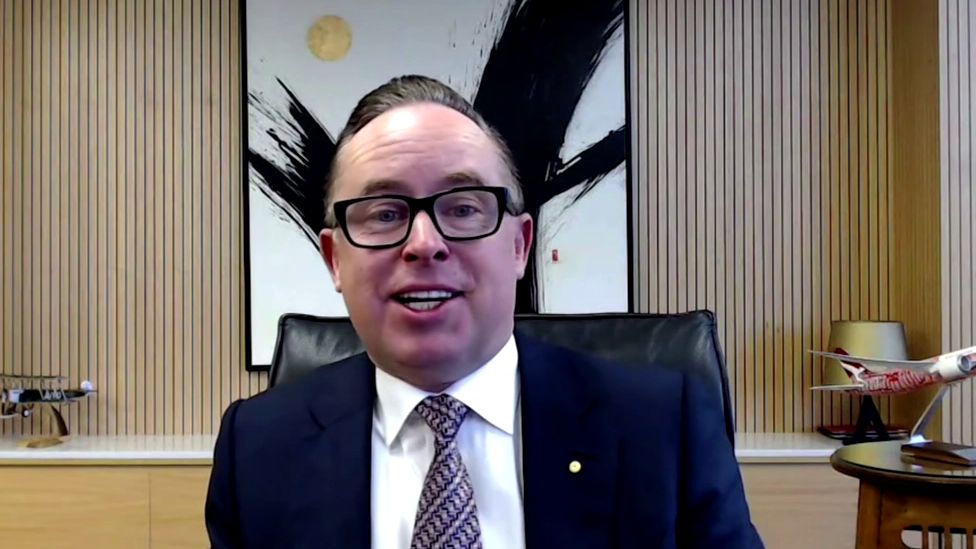
The boss of Australian airline Qantas has told the BBC that "governments are going to insist" on vaccines for international travellers.
Coronavirus vaccines are seen as crucial to reviving an industry that saw worldwide passenger numbers fall 75.6% last year.
Chief executive Alan Joyce said many governments were talking about vaccination as "a condition of entry".
Even if they weren't, he thought the airline should enforce its own policy.
"We have a duty of care to our passengers and to our crew, to say that everybody in that aircraft needs to be safe," Mr Joyce said.
He believes that would justify changing the terms and conditions on which tickets are booked.
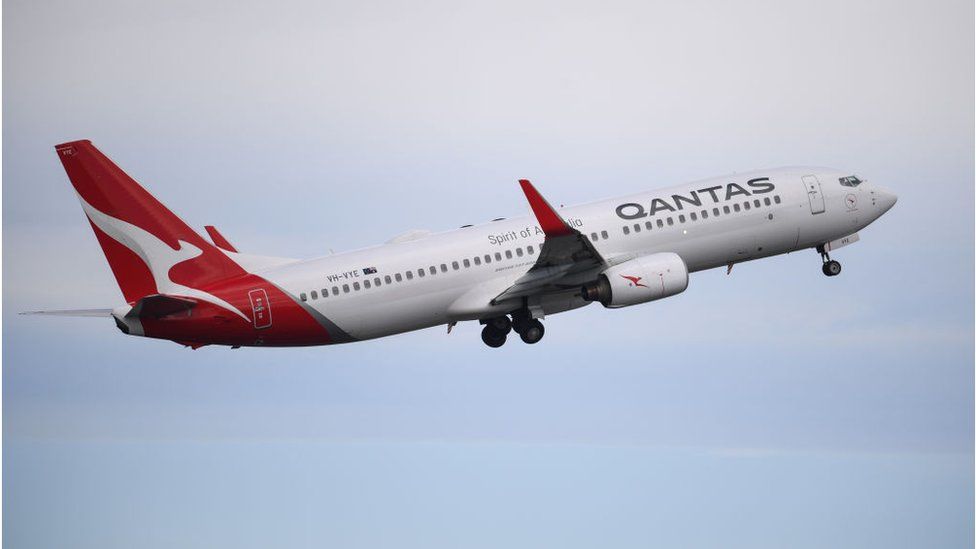
And Mr Joyce thinks passengers would be willing to accept the change. "The vast majority of our customers think this is a great idea - 90% of people that we've surveyed think it should be a requirement for people to be vaccinated to travel internationally."
But some powerful voices are among those who disagree, including the World Health Organisation. Its director of digital health and innovation, Bernardo Mariano, told the BBC: "We don't approve the fact that a vaccinations passport should be a condition for travel."
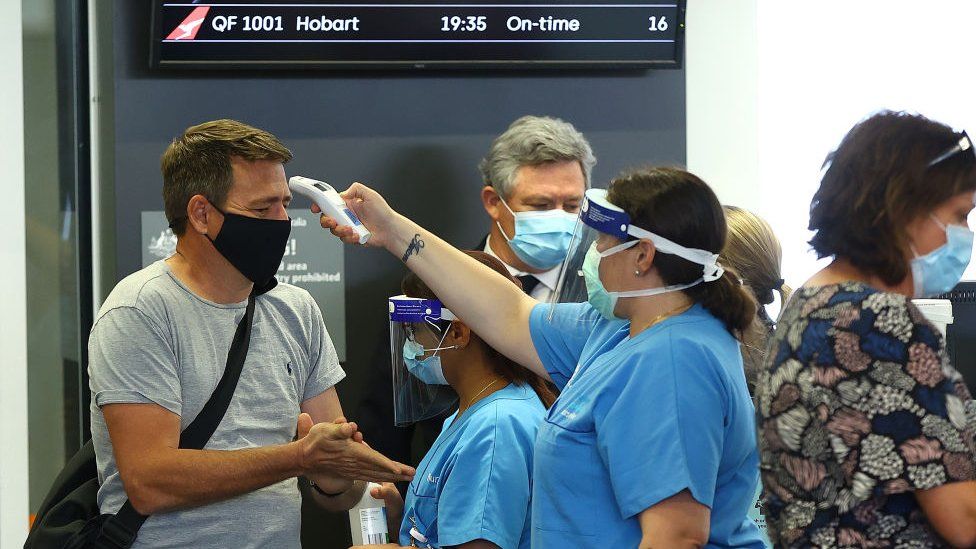
He added that - regardless of what the private sector wanted - a unified approach from governments would be needed to make such a change work.
Managing virus risk
Aviation is vital to the global economy. The International Air Transport Association (Iata) estimates that it supports $1.8 trillion (£1.3tn, A$2.3tn) in global economic activity.
But government restrictions and fears of catching coronavirus have led to an unprecedented fall in passenger numbers in an industry which carried 4.5 billion people in 2019.
Australia's government has closed its borders to almost all foreigners and has also periodically closed internal borders.
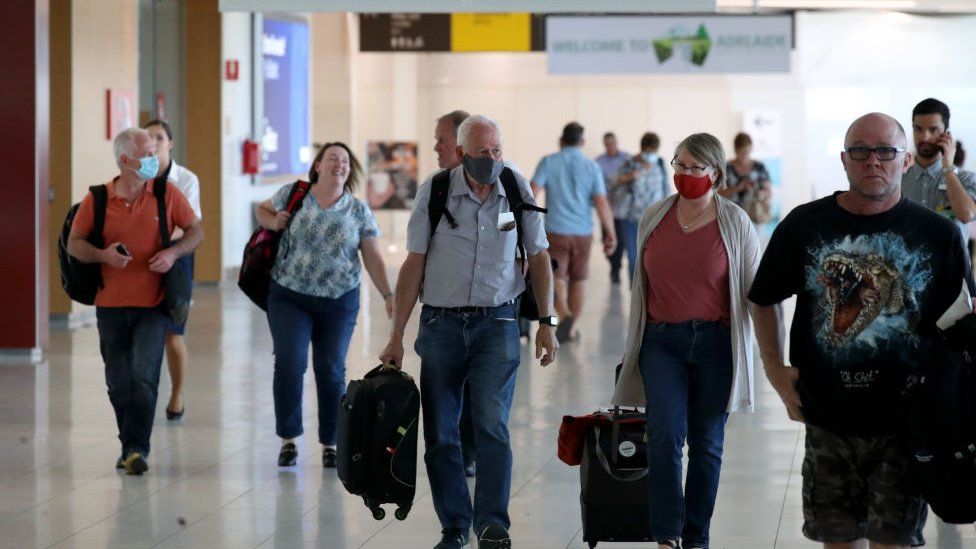
Even with vaccines, Mr Joyce thinks that "once we open up our international borders, we're going to have the virus circulating".
"And that's going to be a big change for a lot of Australia, to find that acceptable," he said. "We need people to understand they can't have zero risk with this virus. We manage risk in so many different other ways for other parts of life."
Pandemic losses
The lack of passengers means that in the last six months of 2020 Qantas lost $800m (£580m, A$1.03bn). That compares with a profit of $596m (£430m, A$771m) in the same period of 2019. It's also meant 8,500 job cuts from a pre-pandemic staff of about 29,000.
And thousands of others are on furlough, with the Australian government paying their wages. Other international carriers have seen similar reversals in their fortunes.
In response, airlines have cut their capacity, with huge numbers of aeroplanes put into storage. For Qantas that was about two-thirds of their 314 aircraft.
Among them are the airline's fleet of giant, double-decker Airbus A380s, one of which was being refurbished when the pandemic took hold. It "went from Dresden in Germany where the reconfig took place straight to the Mojave Desert, and nobody sat on those seats", Mr Joyce said.
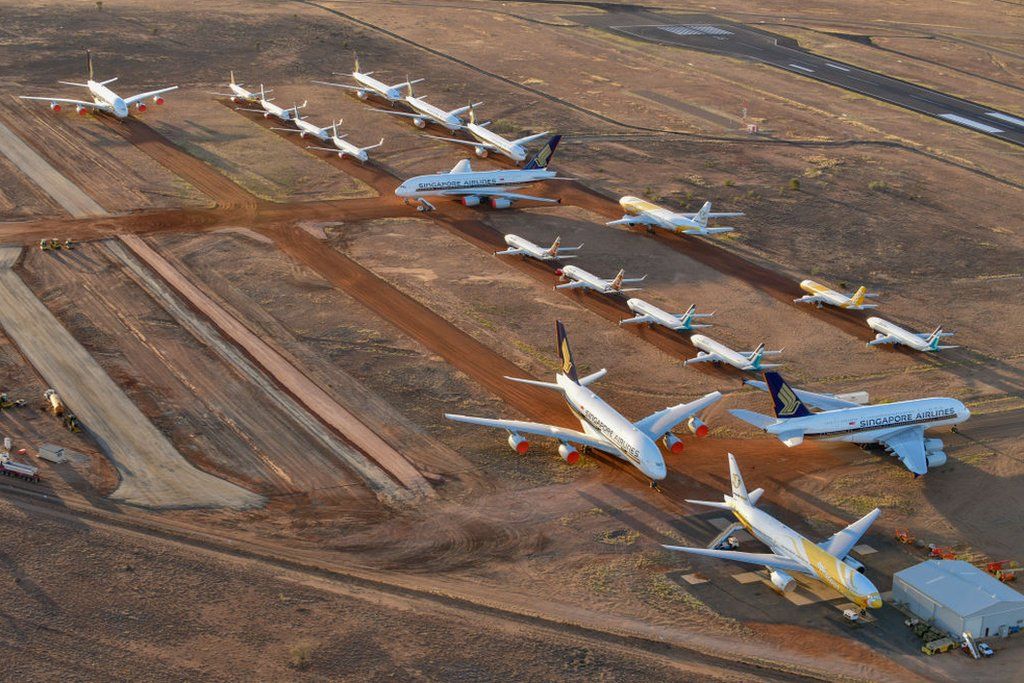
Having less supply of any product normally means that prices climb in response to an increase in demand. However, Mr Joyce doesn't think the combination of fewer seats and the easing of restrictions will lead to higher prices.
"In some cases, we think the airfares could be half of what they were pre-Covid," he said. "And that will be there to stimulate demand."
It could be that way for some time. "Internationally it's going to take a while for it to recover to 2019 levels," the airline boss said.
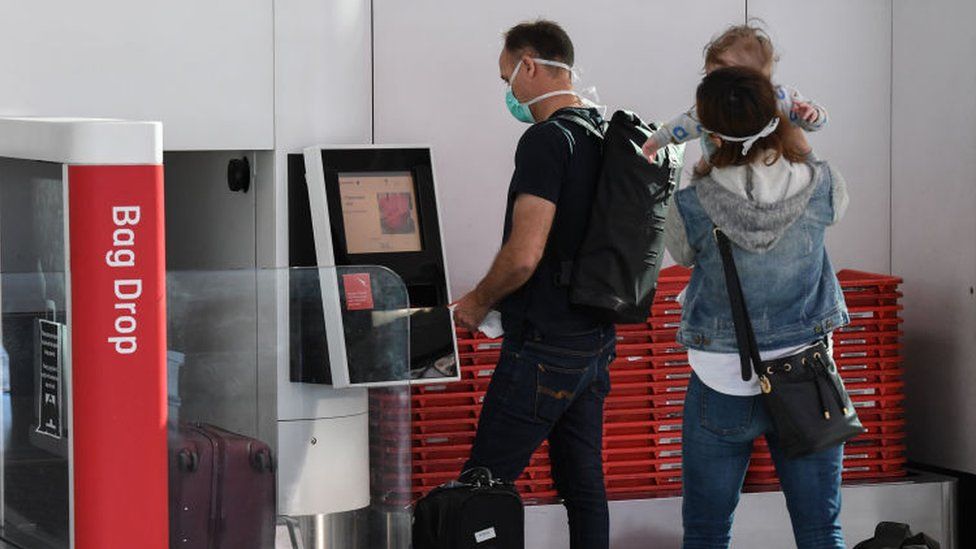
When flights do get going again, the priority will be bringing money in and any surge in demand can be dealt with by bringing more aircraft back into service.
"So we're very confident that it's not going to be higher airfares," Mr Joyce insisted.
Boost to ultra-long haul
Last month Qantas pushed back the date at which it expects its international flights to resume from July to the end of October. That's the point at which the Australian government hopes to have vaccinated all adults and the date for which the airline is now selling international tickets.
"The number one flight by a significant amount is Perth to London non-stop," says Mr Joyce. The demand for the ultra-long haul flights is, he says, "a good indication" that after pandemic passengers will try to avoid changeovers in airports filled with other people.
That desire to travel direct means "the business case is probably going to be stronger" for what Qantas calls "Project Sunrise". It is likely to eventually involve direct flights "from Sydney and Melbourne non-stop into Europe and non-stop to the east coast of the United States", he said.
Tests have already taken place but the launch has been delayed, and is now not expected until 2024.
Tackling climate change
Aviation is responsible for about 2.5% of global carbon emissions.
But Qantas claims to have the "world's biggest airline carbon offset programme". It is also investing $38.7m (£28m, A$50m) in a partnership with BP to develop a sustainable aviation fuel industry in Australia. In addition, it said it was looking at technology such as more fuel-efficient planes as well as electric and hydrogen-powered vehicles.
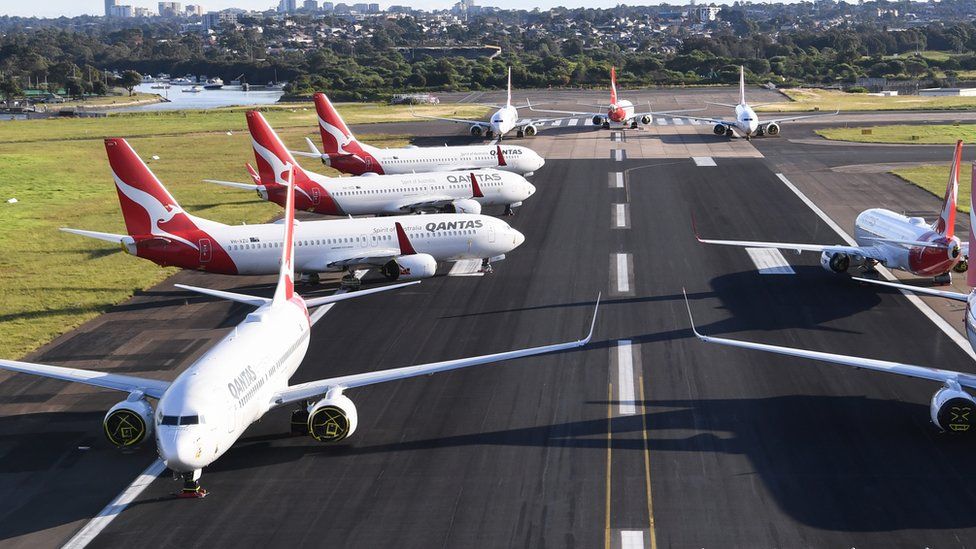
"I think you have to do it," Mr Joyce said. Spending money to cut emissions, he says, shows "it's not just a focus on the bottom line".
"You have to actually do the right thing by the environment, do the right thing by society. Otherwise, you don't have a social licence to operate in the future."
Selling wine and biscuits
To keep the finances on course during the pandemic Qantas has raised $770,000 (£560,000, A$1m) by selling bar carts that in-flight drinks were served from on its now-retired Boeing 747s, as well as wine in plastic bottles and a stock of the quintessentially Australian chocolate biscuit, Timtams.
Mr Joyce says: "You just have to have that flexibility, that adaptability, to survive."
"It's the reason why Qantas survived for 100 years" and is the oldest continuous operating airline in the world, he said.
"That's part of our DNA. That's why we're going to survive for at the least the next 100 years."
You can watch Alan Joyce's full interview on "Talking Business with Aaron Heslehurst" this weekend on BBC World News at Saturday 2330 GMT, Sunday 0530GMT, 1630 GMT, Monday 0730 GMT, 1130 GMT and Tuesday at 1330 GMT.
https://ift.tt/2NAn9fd
Business
Bagikan Berita Ini















0 Response to "Qantas boss: Governments 'to insist' on vaccines for flying - BBC News"
Post a Comment